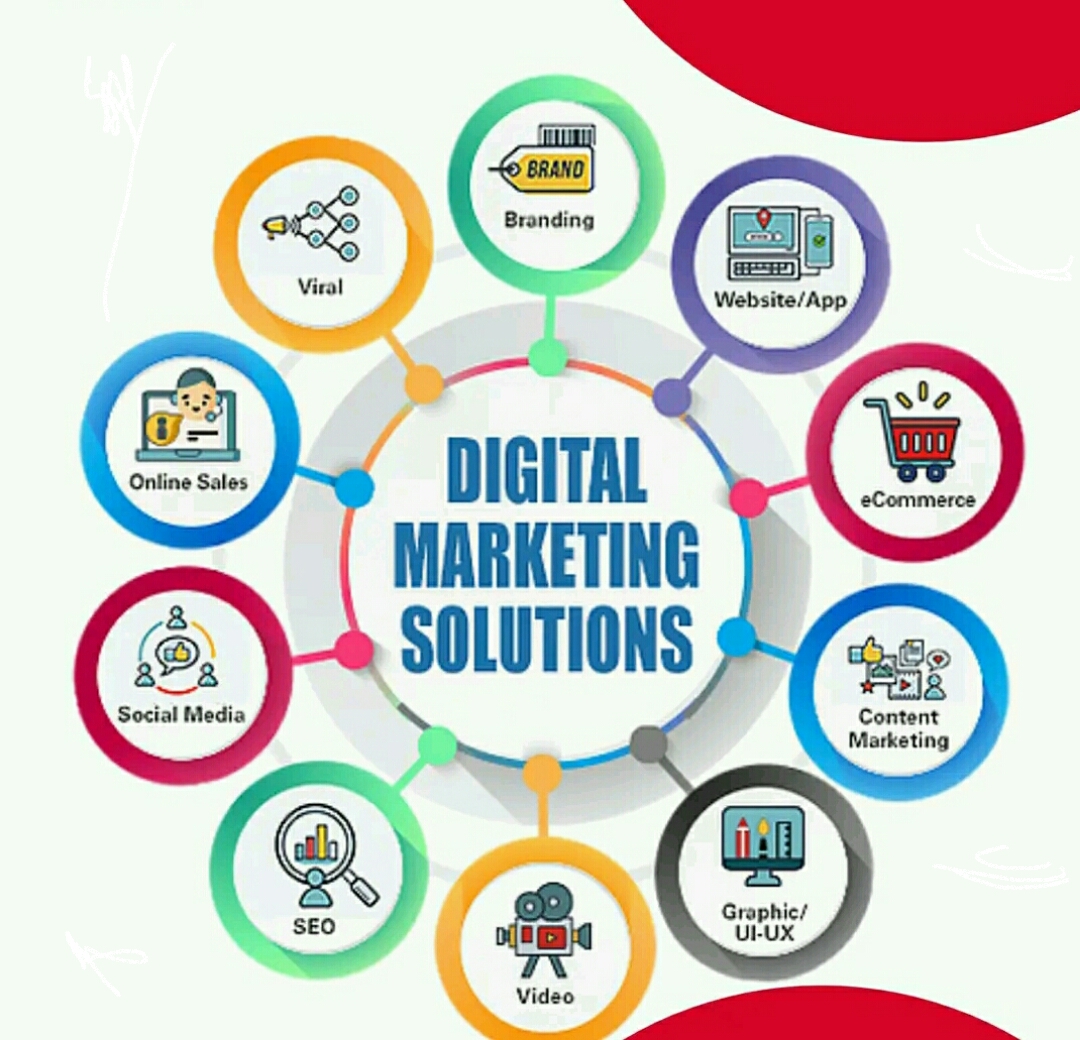Mastering The Social Media Revolution: Unleashing The Power of Digital Marketing User Engagement And Online Community Management

Mastering The Social Media Revolution: Unleashing The Power of Digital Marketing User Engagement And Online Community Management
Social Media and Digital Marketing: Explore the influence of social media platforms on marketing strategies, user engagement, content creation, and the challenges of managing online communities.
Introduction:
? Ignite Your Digital Marketing Strategy! Join us on a thrilling journey into the captivating world of social media revolution and discover the untapped potential waiting to be unleashed. Get ready to harness the extraordinary power of user engagement and master the art of online community management like never before.

? Welcome to a realm where Social Media and Digital Marketing intertwine, creating a dynamic landscape that shapes the very essence of modern business. In this era of interconnectedness, social media platforms have emerged as formidable catalysts, propelling marketing strategies to unprecedented heights. But how exactly does this digital revolution influence user engagement, content creation, and the intricate management of online communities?
? Prepare to dive headfirst into a realm where creativity, innovation, and human connection converge to form an electrifying force. Together, we will unravel the mysteries behind successful social media campaigns, crack the code of magnetic content creation, and conquer the ever-evolving challenges of nurturing thriving online communities.
? Brace yourself for an adventure that will challenge your perceptions, ignite your creativity, and equip you with the tools needed to conquer the vast realm of social media and digital marketing. The revolution is here, and you have the power to be at the forefront. Let’s embark on this transformative journey together and unleash the full potential of your brand in the dynamic world of online engagement and community management.
Mastering The Social Media Revolution: Unleashing The Power of Digital Marketing User Engagement And Online Community Management

The influence of Social Media Platforms on Marketing Strategies, User Engagement And Content Creation
Social media platforms have revolutionized the way businesses approach marketing strategies, user engagement, and content creation. With the increasing dominance of digital media in our lives, social media has emerged as a powerful tool for businesses to connect with their target audience and promote their products or services. This article delves into the influence of social media platforms on marketing strategies, user engagement, and content creation.
Marketing Strategies:
Social media platforms have provided businesses with an unprecedented level of access to their target market. Through platforms like Facebook, Instagram, Twitter, and LinkedIn, companies can reach a large audience at a fraction of the cost compared to traditional advertising methods. This has leveled the playing field, allowing small businesses and startups to compete with larger corporations on a global scale.
The targeting capabilities of social media platforms are one of their most significant advantages. Businesses can leverage user data and demographics to create highly targeted campaigns. By tailoring content to specific audiences, companies can maximize their marketing efforts and achieve better results. Social media analytics tools also provide valuable insights into campaign performance, allowing businesses to refine their strategies based on real-time data.
User Engagement:
Social media platforms have transformed the way businesses engage with their customers. These platforms facilitate two-way communication, enabling companies to receive feedback, address customer concerns, and build relationships with their audience. By actively engaging with users through comments, direct messages, and polls, businesses can foster brand loyalty and create a community around their products or services.
Furthermore, social media platforms provide a space for user-generated content (UGC). UGC refers to content created by consumers that promotes or relates to a brand. This content can include reviews, testimonials, images, videos, and more. UGC is highly valuable as it adds authenticity and credibility to a brand’s marketing efforts. By encouraging and leveraging UGC, businesses can strengthen their relationship with customers and increase brand advocacy.
Content Creation:
Social media platforms have redefined content creation and consumption. Traditional marketing campaigns often relied on one-way communication, where businesses pushed their messages to the audience. However, social media platforms prioritize content that is engaging, relevant, and shareable. This shift has forced businesses to adapt their content strategies accordingly.
Visual content, such as images and videos, has gained prominence on social media. Platforms like Instagram, TikTok, and YouTube thrive on visually appealing and easily consumable content. Businesses need to create compelling visuals that capture attention and resonate with their target audience. Additionally, the rise of ephemeral content, which disappears after a certain time, has influenced content creation strategies. Platforms like Snapchat and Instagram Stories have popularized this format, encouraging businesses to create timely and authentic content that capitalizes on FOMO (fear of missing out).
Moreover, social media algorithms play a crucial role in content distribution. Platforms employ algorithms that prioritize content based on factors like user preferences, engagement, and relevance. To maximize visibility, businesses must create content that aligns with these algorithms’ criteria, such as posting frequently, engaging with users, and producing high-quality content that sparks meaningful conversations.

In conclusion, social media platforms have had a profound impact on marketing strategies, user engagement, and content creation. These platforms have provided businesses with new opportunities to reach their target audience, engage with customers, and create compelling content. To succeed in today’s digital landscape, companies must adapt their marketing strategies to leverage the power of social media and stay relevant in the ever-evolving world of digital marketing.
Mastering The Social Media Revolution: Unleashing The Power of Digital Marketing User Engagement And Online Community Management

The Challenges of Managing Online Communities
In today’s digital age, social media platforms have become powerful tools for businesses and individuals alike to connect, engage, and promote their products or ideas. With the rise of social media and digital marketing, managing online communities has become both a tremendous opportunity and a significant challenge. While these communities can be highly beneficial for brands, they also require careful navigation to ensure a positive and productive environment for users. Let’s explore some of the key challenges faced in managing online communities within the realm of social media and digital marketing.
Maintaining Engagement and Interest: With the abundance of content available online, capturing and maintaining users’ attention can be a daunting task. Online communities need to continuously deliver valuable and relevant content to keep their members engaged. This requires a deep understanding of the target audience, their preferences, and their needs. Content creators and community managers must strive to create compelling and shareable content that sparks conversations and encourages active participation.
Dealing with Negative Feedback and Trolls: Online communities are not immune to negativity. Negative feedback, criticism, and trolls can emerge in any community. Managing and addressing these challenges effectively is crucial for maintaining a positive environment. Community managers must develop strategies to handle negative comments and feedback promptly, balancing the need for open dialogue with the responsibility to maintain respectful and constructive discussions.
Building and Preserving Trust: Trust is the cornerstone of any successful online community. Establishing trust requires transparency, authenticity, and consistency. Community managers must be open and honest in their communication, address concerns or issues promptly, and create a sense of belonging and safety within the community. Fostering trust encourages active participation, facilitates knowledge sharing, and ultimately strengthens the community’s impact and influence.
Balancing Control and User Freedom: Striking the right balance between maintaining control and allowing user freedom can be a delicate challenge. While it’s essential to establish community guidelines and rules to ensure a positive environment, overly restrictive measures can stifle creativity and limit community growth. Community managers need to find a middle ground that encourages user-generated content, collaboration, and innovation while still maintaining a level of control to prevent abuse and maintain community standards.
Handling Online Conflict and Disputes: In any community, conflicts and disputes are bound to arise. It is the responsibility of community managers to handle these situations professionally and diplomatically. Implementing clear conflict resolution mechanisms, establishing open channels for dialogue, and intervening when necessary are vital for maintaining harmony within the community. The goal should be to foster healthy discussions and resolve conflicts constructively, ensuring the community remains a welcoming space for all members.
SEE ALSO : HOW YOU CAN RUN IOS APPS ON YOUR ANDROID PHONE DEVICE
Adapting to Changing Platforms and Trends: Social media platforms and digital marketing trends are constantly evolving. New platforms emerge, algorithms change, and user behaviors shift. Community managers must stay up-to-date with these changes and adapt their strategies accordingly. Flexibility, agility, and a willingness to embrace new technologies and trends are key to overcoming the challenges of managing online communities successfully.
SEE ALSO : 38 PROFITABLE TECH BUSINESSES YOU CAN DO IN 2023
In conclusion, managing online communities within the realm of social media and digital marketing presents several challenges. However, with careful planning, effective communication, and a deep understanding of the community and its members, these challenges can be overcome. By maintaining engagement, fostering trust, handling conflicts diplomatically, and adapting to changing trends, online communities can thrive and provide valuable opportunities for brands and individuals to connect, learn, and grow in the digital landscape.
Comments are closed.